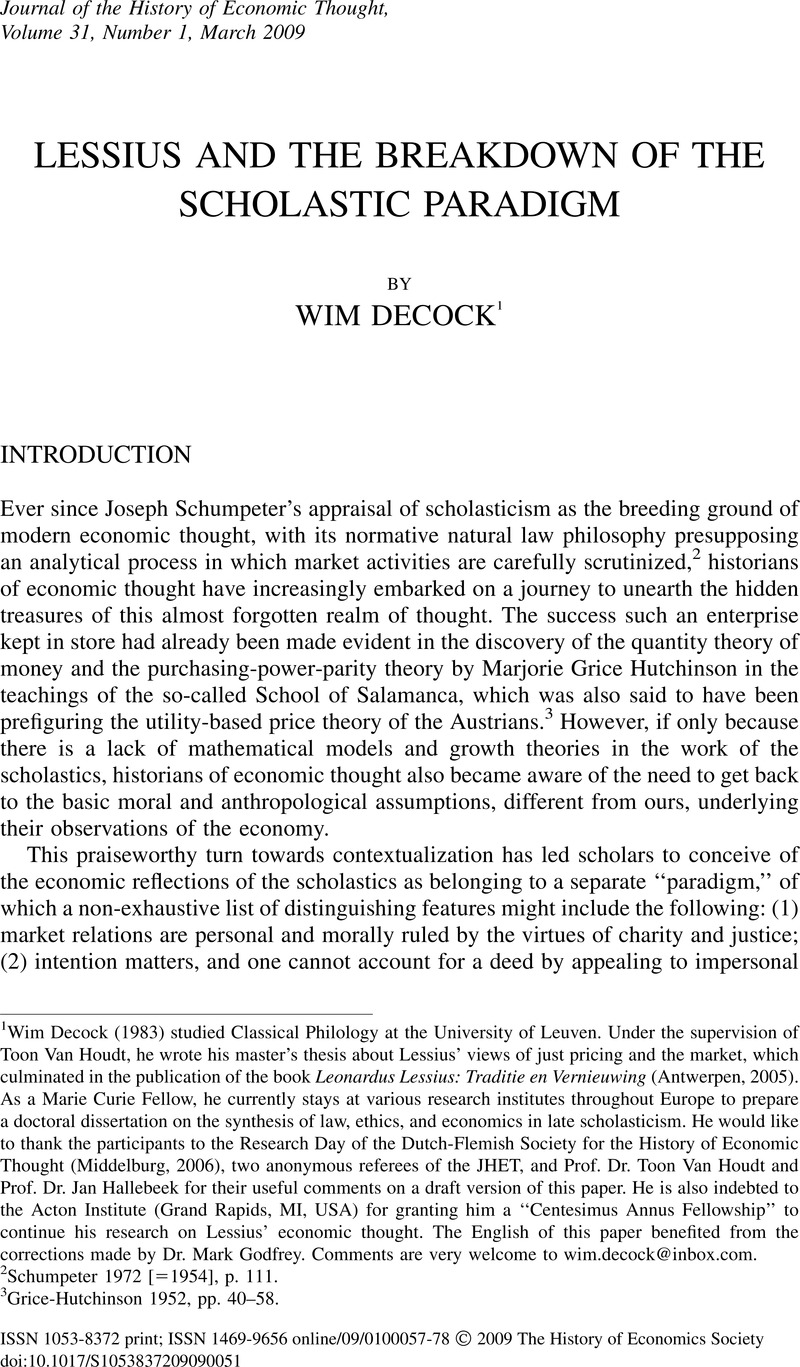Crossref Citations
This article has been cited by the following publications. This list is generated based on data provided by Crossref.
Backhouse, Roger E.
2010.
Methodology in action.
Journal of Economic Methodology,
Vol. 17,
Issue. 1,
p.
3.
Monsalve, Fabio
2014.
LATE SPANISH DOCTORS ON USURY, AND THE EVOLVING SCHOLASTIC TRADITION.
Journal of the History of Economic Thought,
Vol. 36,
Issue. 2,
p.
215.
McGinnis, Andrew M.
2019.
Charity and Commerce: Joseph Hall’s Reception of Catholic Casuistry and Economic Thought.
Reformation & Renaissance Review,
Vol. 21,
Issue. 3,
p.
203.
Lenoble, Clément
and
Toneatto, Valentina
2019.
Les « lexiques médiévaux de la pensée économique »: Une histoire des mots du marché comme processus de domination et d’exclusion.
Annales. Histoire, Sciences Sociales,
Vol. 74,
Issue. 1,
p.
25.
Wijffels, Alain
2020.
Pour une histoire européenne du droit des affaires : comparaisons méthodologiques et bilans historiographiques.
p.
127.
Van Houdt, Toon
2021.
Great Christian Jurists in the Low Countries.
p.
64.
Casalini, Cristiano
and
Madella, Laura
2021.
Vegetative Powers.
Vol. 234,
Issue. ,
p.
177.
Gniadek, Jacek
2024.
Dyskontowanie czasu i preferencja czasowa w analizie moralno-ekonomicznej Leonarda Lessiusa SJ.
Teologia i Moralność,
Vol. 19,
Issue. 1(35),
p.
115.
Bednarz, Jacek
and
Błasiak, Zdzisław Adam
2024.
The Entrepreneur’s Prayer and the Scholastic Inspirations of Free-Market Economics.
Religions,
Vol. 15,
Issue. 3,
p.
251.
Vilches, Elvira
2024.
The Palgrave Handbook of Philosophy and Money.
p.
617.



